|
|
|
|
|
|
|
|
No Arctic-science events are announced for today.
|
Media
Arctic's Strongest Sea Ice Breaks up For First Time on Record. The oldest and thickest sea ice in the Arctic has started to break up, opening waters north of Greenland that are normally frozen, even in summer. This phenomenon - which has never been recorded before - has occurred twice this year due to warm winds and a climate-change driven heatwave in the northern hemisphere. One meteorologist described the loss of ice as "scary". The Guardian
The Arctic Other in American Cultural and Intellectual History. Though the U.S. has had a robust national conversation about the shifting state of the Arctic in recent years, analysis of the nation's relationship with the region often lacks a sense of the longer American cultural and intellectual history of the Arctic. In the past decade, U.S. media, various think tanks, and a bevy of new Arctic scholars have contributed to a floodtide of interest about the country's stakes in the Arctic. It has been urged on by heightened awareness of unprecedented sea ice retreat, the seemingly aggressive aspirations of Russia, and media sensationalism. The Arctic Institute
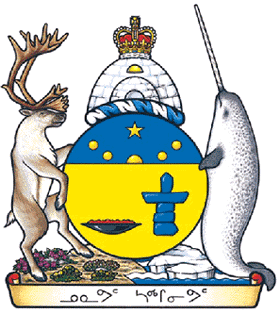 New Northern Affairs Minister Seeks "Tangible Results" for Nunavut. New Northern Affairs Minister Seeks "Tangible Results" for Nunavut. The Trudeau government's new minister of northern affairs, Dominic LeBlanc, said today that he seeks "tangible results" for Nunavut on the northern economic development and infrastructure files he's now responsible for. LeBlanc made the remarks in a wide-ranging interview with Nunatsiaq News on Monday, Aug. 20, the morning after he had met with Inuit leaders, including Aluki Kotierk, the president of Nunavut Tunngavik Inc., and with Nunavut Premier Joe Savikataaq. Nunatsiaq Online On the Menu for Northern Snowshoe Hares: Dirt. The evidence is in: Snowshoe hares near Wiseman eat lots of dirt. "I have thousands and thousands of photos of hares eating soil in this one little spot," said Donna DiFolco, a biologist and cartographer with the National Park Service. DiFolco has studied hares in the eastern portion of Gates of the Arctic National Park since 1997. That's when she started counting hare tracks near Wiseman as part of a lynx study. The Arctic Sounder University of Alaska Fairbanks Selected for Drone Study. The University of Alaska Fairbanks has been chosen as the host of the Federal Aviation Administration's new drone use project. Called the Unmanned Aircraft Systems Integration Pilot Program, it will focus on the safe use of drones in American airspace and alongside other aircraft. "In Alaska, we have more pilots per capita than anywhere else and we share our airspace with general aviation, commercial air carriers, military flights, and soon, drones," noted the Alaska Department of Transportation in its summer 2018 newsletter, Plane Talk. The Arctic Sounder Expedition to Study Arctic Seas Departs from Arkhangelsk. An expedition of 80 scientists on board the Mstislav Keldysh research vessel on Friday departed from Arkhangelsk's port to survey the Arctic seas. "We shall begin working in the Barents Sea, and then will enter the Kara Sea, will make surveys at various locations, which we have been monitoring for many years, and then will go to the Vilkitsky Strait to enter the Laptev Sea's eastern part," the expedition's head, Deputy Director of the Shirshov Oceanology Studies Institute Mikhail Flint told TASS. "The expedition will continue for 36 days, and we shall return to Arkhangelsk on September 20." TASS 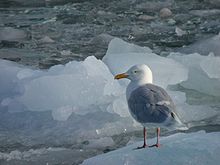 Arctic Seabird Populations Respond to Climate Change. Arctic Seabird Populations Respond to Climate Change. Seabirds such as gulls can be key indicators of environmental change as their populations respond to shifts in their ocean habitat over time. A new study from The Auk: Ornithological Advances investigates how several species have responded to changing environmental conditions in the Arctic over the last four decades. The authors find that a warming ocean is directly and indirectly affecting seabird populations in Alaska. The University of Idaho's Holly Goyert (now at the University of Massachusetts) and her colleagues used mathematical models to explore relationships between large, long-term datasets covering climate fluctuation, zooplankton abundance and distribution, and populations of several seabird species in the waters off Alaska from 1974 to 2014. They found that declines in populations of an Arctic gull called the Black-legged Kittiwake are tied to deteriorating zooplankton productivity, while their cousins the Red-legged Kittiwakes, also declining, are more sensitive to warming ocean surface temperatures. Not every seabird is in trouble, though-Common and Thick-billed Murres, relatives of puffins, have proved resilient to changing conditions and may even be benefitting. The Condor and The Auk Climate Change Looming Mental Health Crisis. For the Inuit of Labrador in Canada, climate disaster has already arrived. These indigenous people form an intense bond with their land, hunting for food and fur. "People like to go out on the land to feel good," says Noah Nochasak in the documentary Lament for the Land. "If they can't go out on the land, travel a long ways to feel good, they don't feel like people." The Inuit's lands, though, are warming twice as fast as the global average, imperiling the ice they rely on to travel. In the fall, hunters tend to get stuck in the community, because ice hasn't fully formed up-and again, in the spring, when things are melting. Climate change is making these ice transition periods even longer. Wired
|
|
Future Events
The Fourth US National Climate Assessment: An Overview of Volume 1, August 28, 2018 (Washington, DC and via webinar). This event is part of the Climate Science Special Report (CSSR) Seminar Series by the US Global Change Research Program in partnership with the National Oceanic and Atmospheric Administration. New observations and new research have increased our understanding of past, current, and future climate change. The Fourth National Climate Assessment confirms prior assessments in concluding that the climate on our planet, including the United States, is changing, and changing rapidly. Observational evidence for a changing climate abounds, from the top of the atmosphere to the depths of the oceans. The speaker will be Donald J. Wuebbles, the Harry E. Preble Professor of Atmospheric Science at the University of Illinois.
UArctic Congress 2018, September 3-7, 2018 (Oulu and Helsinki, Finland). The UArctic Congress 2018 will bring together key
UArctic meetings and  a science conference into one single gathering, including business meetings of the Council of UArctic, Rectors' Forum, Student Forum, and Thematic Networks & UArctic Institutes Leadership Team. The Congress is an integral part of the Finland's Arctic Council chairmanship program, and open to the public. The event will highlight the themes and priorities of the Finnish chairmanship, including the goals of the United Nations' 2030 Agenda for Sustainable Development, and the Paris Agreement under the UN Framework Convention on Climate Change. a science conference into one single gathering, including business meetings of the Council of UArctic, Rectors' Forum, Student Forum, and Thematic Networks & UArctic Institutes Leadership Team. The Congress is an integral part of the Finland's Arctic Council chairmanship program, and open to the public. The event will highlight the themes and priorities of the Finnish chairmanship, including the goals of the United Nations' 2030 Agenda for Sustainable Development, and the Paris Agreement under the UN Framework Convention on Climate Change.
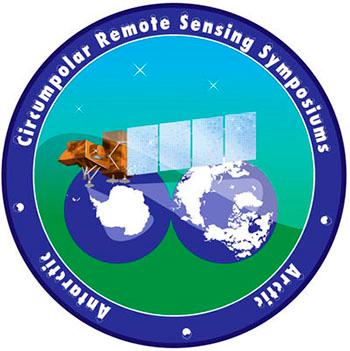
 ** New this week ** North American Arctic Maritime and Environmental Security Workshop, September 18-20, 2018 (Anchorage, Alaska USA). ** New this week ** North American Arctic Maritime and Environmental Security Workshop, September 18-20, 2018 (Anchorage, Alaska USA). The Arctic Domain Awareness Center at the University of Alaska and Trent University, Peterborough Ontario, jointly welcome participants to the North American Arctic Maritime and Environmental Security Workshop, University of Alaska Anchorage, Gorsuch Commons Center. The purpose of the event is to gather Arctic minded experts from government, operators, academics and industry principally from Canada and the U.S. to collaboratively assess security and provide solutions focused on the North American Arctic maritime region, including environmental and human security. The workshop will include plenary panels and breakout discussions to facilitate assessment and identify actions to mitigate risk and improve North American Arctic Maritime and Environmental Security. The "so what" of this workshop, is to build on prior discussions and assessments (much of which is contained in a preparatory Literature Review), and create a framework of actions that policy and decision makers can leverage. For more information, email here.
September NWS Alaska Climate Outlook Briefing, September 21, 2018 (Fairbanks, Alaska USA and via webinar). The tools and techniques for making monthly and season scale climate forecasts are rapidly changing, with the potential to provide useful forecasts at the month and longer range. We will review recent climate conditions around Alaska, review some forecast tools and finish up the Climate Prediction Center's forecast for October and the early winter season. This event is part of the National Oceanic and Atmospheric Administration Science Seminar Series.
Scientific Exploration of the Arctic and North Pacific (SEA-NorP), September 25-27, 2018 (Mt. Hood, Oregon USA). This workshop will include discussion of hypotheses that can be tested by scientific drilling in the region, the technology necessary to achieve those goals, ideal sites for drilling based on existing data, and where additional site survey data is needed. The goal of the workshop organizers is that multiple proposals will be initiated at the workshop, both for full cruise legs and for shorter, targeted expeditions around the following themes: ocean gateways, geohazards, volatile cycling, ice histories at transition zones, biosphere and climate.
The second Arctic Biodiversity Congress is hosted by the Conservation of Arctic Flora and Fauna (CAFF), the biodiversity working group of the Arctic Council, and the Ministry of the Environment, Finland. The second Arctic Biodiversity Congress will build on the success of the first Congress, held in 2014 in Trondheim, Norway, and will bring together scientists, policymakers government officials, Indigenous representatives, Traditional Knowledge holders, industry, non-governmental organizations, and others to promote the conservation and sustainable use of Arctic biodiversity.
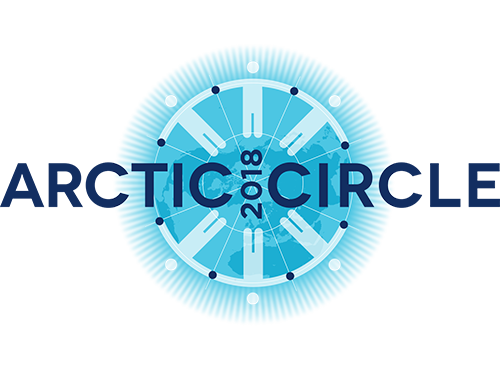 Arctic Circle Assembly, October 2018 (Reykjavik, Iceland). The annual Arctic Circle Assembly is the largest annual international gathering on the Arctic, attended by more than 2000 participants from 60 countries. It is attended by heads of states and governments, ministers, members of parliaments, officials, experts, scientists, entrepreneurs, business leaders, indigenous representatives, environmentalists, students, activists and others from the growing international community of partners and participants interested in the future of the Arctic. Arctic Circle Assembly, October 2018 (Reykjavik, Iceland). The annual Arctic Circle Assembly is the largest annual international gathering on the Arctic, attended by more than 2000 participants from 60 countries. It is attended by heads of states and governments, ministers, members of parliaments, officials, experts, scientists, entrepreneurs, business leaders, indigenous representatives, environmentalists, students, activists and others from the growing international community of partners and participants interested in the future of the Arctic.
Arctic Science Forum Associated with the 2nd Arctic Science Ministerial, October 25, 2018 (Berlin, Germany and via webcast). How vulnerable and how resilient are nature and the people of the Arctic region? How well do we understand the regional and global dynamics which are driving change in the Arctic? What impact will change in the Arctic have on us? These and other questions are the focus of this two-day conference. It will take interdisciplinary research in the Arctic to gain an understanding of past and future processes - a complex and cost-intensive venture. This makes an international network of Arctic research so important for delivering better results. Cooperation in research, the exchange of data, collaborative observation and monitoring schemes - international cooperation is imperative in research on the Arctic.
Only the Science Forum, on October 25th, will be webcast. The Arctic Ministerial, on October 26th, will NOT be webcast.
Maritime & Arctic Security & Safety Conference (MASS18) "Arctic Technology" November 15-16, 2018 (Newfoundland & Labrador Canada). Now in its sixth year, MASS has gained an international reputation as a must-attend event to gain a wide perspective on challenges, opportunities and policies related to the Arctic and North Atlantic maritime environments. The aim of this Government of Canada and the Government of Newfoundland and Labrador supported international conference is to promote stakeholder collaboration, technological innovation, harsh environment research & development, and world-class education efforts that are contributing to both Maritime and Arctic issues. This two day conference will draw a diverse group of speakers and attendees representing government, military, Canadian and U.S. Coast Guard, industry, academic leaders, Northern Leaders, research and other key stakeholders. We hope you can join us to be a part of this important dialogue
American Geophysical Union Fall meeting, December 10-14, 2018 (Washington, DC USA). The AGU 2018 Fall Meeting will mark another dynamic year of discovery in Earth and space science, serve as the advent of AGU's Centennial year, and provide a special opportunity to share our science with world  leaders in Washington, D.C. As the largest Earth and space science gathering in the world, the Fall Meeting places you in the center of a global community of scientists drawn from myriad fields of study whose work protects the health and welfare of people worldwide, spurs innovation, and informs decisions that are critical to the sustainability of the Earth.
ArcticNet: Annual Scientific Meeting 2018, December 10-14, 2018 (Ottawa, ON Canada). Canada's North is experiencing unprecedented change in its sea and terrestrial ice, permafrost and ecosystems under the triple pressures of climate change, industrialization and modernization. The impacts of these pressures can be seen on food and energy security, shipping, sovereignty, northern community health and well-being, and sustainable development and resource exploitation. All these issues have brought the North to the forefront of national and international agendas. Building on the success of its previous Annual Scientific Meetings and International Arctic Change Conferences, the Arctic Network of Centers of Excellence announces the 14th ArcticNet Annual Scientific Meeting.
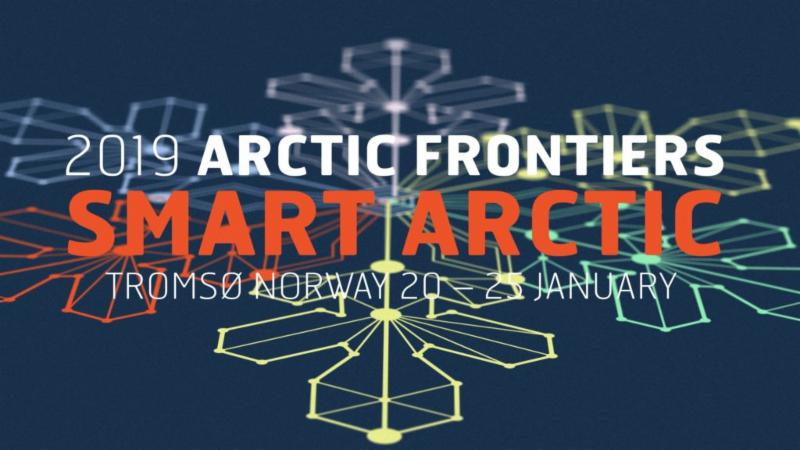 is a global scientific conference on economic, societal, and environmental sustainable growth. This year's theme will be "Smart Arctic," with a pan-arctic emphasis, and an effort to build new partnerships across nations, generations and ethnic groups. Arctic Frontiers provides a forum for dialogue and communication between science, government and industry. The plenary program will have five main sessions: State of the Arctic, Blue Growth, Smart Solutions, Bridging the Gap, and Arctic business prospects. An abstract-driven science program will address Plastics in the Ocean, the Future of Governance and Handling Vulnerability in Arctic Ecosystems, State of the Arctic and A Smart Arctic Future.
 of the AAG includes over 8,500 geographers converging from the U.S., Canada, and nearly 60 other countries in a typical year including geographers, GIS specialists, environmental scientists, and other leaders for the latest in research and applications in geography, sustainability, and GIScience. of the AAG includes over 8,500 geographers converging from the U.S., Canada, and nearly 60 other countries in a typical year including geographers, GIS specialists, environmental scientists, and other leaders for the latest in research and applications in geography, sustainability, and GIScience.
|
|

  
4350 N. Fairfax Drive, Suite 510
Arlington, VA 22203, USA
External links in this publication, and on the USARC's World Wide Web site ( www.arctic.gov) do not constitute endorsement by the US Arctic Research Commission of external Web sites or the information, products or services contained therein. For other than authorized activities, the USARC does not exercise any editorial control over the information you may find at these locations. These links are provided consistent with the stated purpose of this newsletter and the USARC Web site.
|
|
|
|
|
|
|
|
|
 New Northern Affairs Minister Seeks "Tangible Results" for Nunavut. The Trudeau government's new minister of northern affairs, Dominic LeBlanc, said today that he seeks "tangible results" for Nunavut on the northern economic development and infrastructure files he's now responsible for. LeBlanc made the remarks in a wide-ranging interview with Nunatsiaq News on Monday, Aug. 20, the morning after he had met with Inuit leaders, including Aluki Kotierk, the president of Nunavut Tunngavik Inc., and with Nunavut Premier Joe Savikataaq. Nunatsiaq Online
New Northern Affairs Minister Seeks "Tangible Results" for Nunavut. The Trudeau government's new minister of northern affairs, Dominic LeBlanc, said today that he seeks "tangible results" for Nunavut on the northern economic development and infrastructure files he's now responsible for. LeBlanc made the remarks in a wide-ranging interview with Nunatsiaq News on Monday, Aug. 20, the morning after he had met with Inuit leaders, including Aluki Kotierk, the president of Nunavut Tunngavik Inc., and with Nunavut Premier Joe Savikataaq. Nunatsiaq Online Arctic Seabird Populations Respond to Climate Change. Seabirds such as gulls can be key indicators of environmental change as their populations respond to shifts in their ocean habitat over time. A new study from The Auk: Ornithological Advances investigates how several species have responded to changing environmental conditions in the Arctic over the last four decades. The authors find that a warming ocean is directly and indirectly affecting seabird populations in Alaska. The University of Idaho's Holly Goyert (now at the University of Massachusetts) and her colleagues used mathematical models to explore relationships between large, long-term datasets covering climate fluctuation, zooplankton abundance and distribution, and populations of several seabird species in the waters off Alaska from 1974 to 2014. They found that declines in populations of an Arctic gull called the Black-legged Kittiwake are tied to deteriorating zooplankton productivity, while their cousins the Red-legged Kittiwakes, also declining, are more sensitive to warming ocean surface temperatures. Not every seabird is in trouble, though-Common and Thick-billed Murres, relatives of puffins, have proved resilient to changing conditions and may even be benefitting. The Condor and The Auk
Arctic Seabird Populations Respond to Climate Change. Seabirds such as gulls can be key indicators of environmental change as their populations respond to shifts in their ocean habitat over time. A new study from The Auk: Ornithological Advances investigates how several species have responded to changing environmental conditions in the Arctic over the last four decades. The authors find that a warming ocean is directly and indirectly affecting seabird populations in Alaska. The University of Idaho's Holly Goyert (now at the University of Massachusetts) and her colleagues used mathematical models to explore relationships between large, long-term datasets covering climate fluctuation, zooplankton abundance and distribution, and populations of several seabird species in the waters off Alaska from 1974 to 2014. They found that declines in populations of an Arctic gull called the Black-legged Kittiwake are tied to deteriorating zooplankton productivity, while their cousins the Red-legged Kittiwakes, also declining, are more sensitive to warming ocean surface temperatures. Not every seabird is in trouble, though-Common and Thick-billed Murres, relatives of puffins, have proved resilient to changing conditions and may even be benefitting. The Condor and The Auk
 a science conference into one single gathering, including business meetings of the Council of UArctic, Rectors' Forum, Student Forum, and Thematic Networks & UArctic Institutes Leadership Team. The Congress is an integral part of the Finland's Arctic Council chairmanship program, and open to the public. The event will highlight the themes and priorities of the Finnish chairmanship, including the goals of the United Nations' 2030 Agenda for Sustainable Development, and the Paris Agreement under the UN Framework Convention on Climate Change.
a science conference into one single gathering, including business meetings of the Council of UArctic, Rectors' Forum, Student Forum, and Thematic Networks & UArctic Institutes Leadership Team. The Congress is an integral part of the Finland's Arctic Council chairmanship program, and open to the public. The event will highlight the themes and priorities of the Finnish chairmanship, including the goals of the United Nations' 2030 Agenda for Sustainable Development, and the Paris Agreement under the UN Framework Convention on Climate Change.


